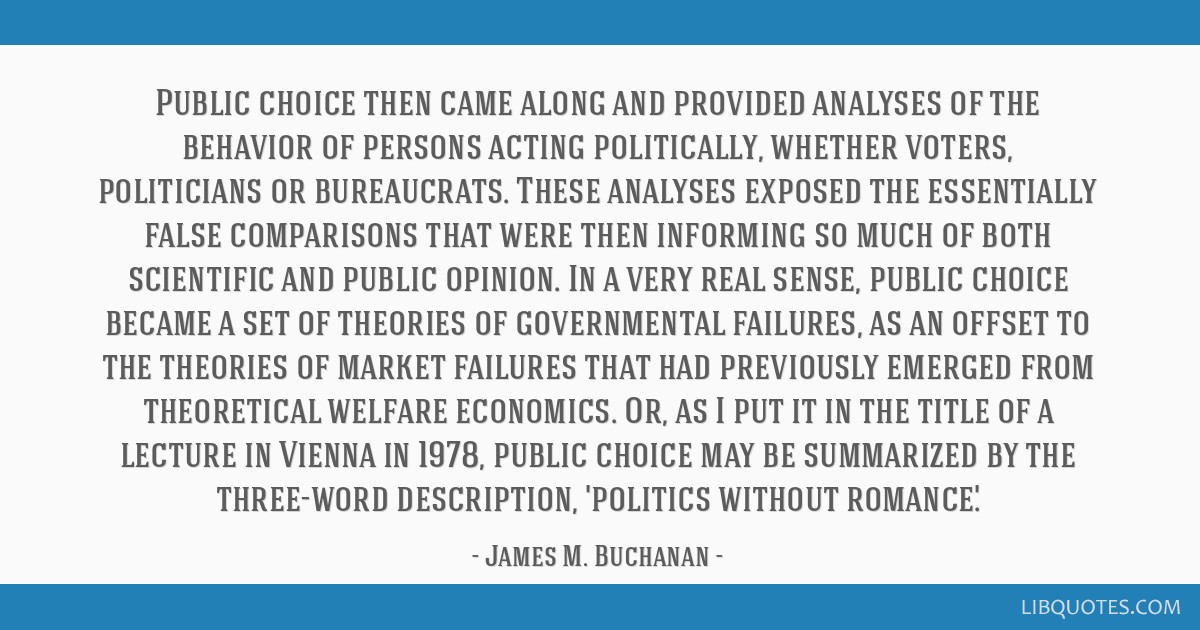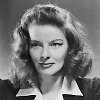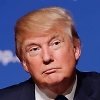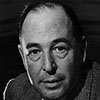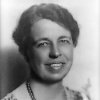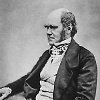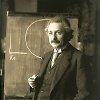Public choice then came along and provided analyses of the behavior of persons acting politically, whether voters, politicians or bureaucrats. These analyses exposed the essentially false comparisons that were then informing so much of both scientific and public opinion. In a very real sense, public choice became a set of theories of governmental failures, as an offset to the theories of market failures that had previously emerged from theoretical welfare economics. Or, as I put it in the title of a lecture in Vienna in 1978, public choice may be summarized by the three-word description, 'politics without romance'.
Public Choice: The Origins and Development of a Research Program (2003)
